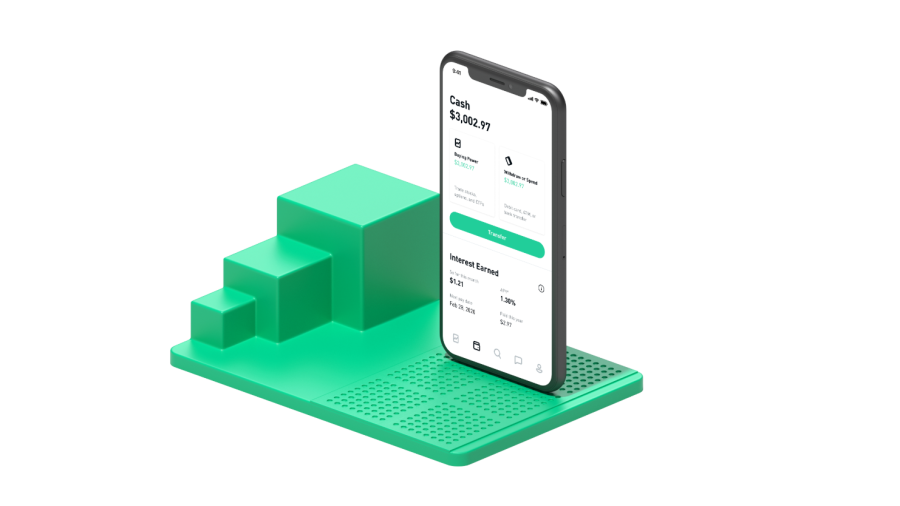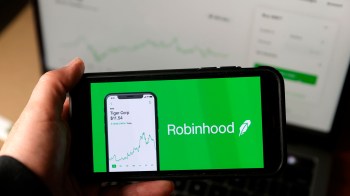Apps like Robinhood make investing easier. Maybe too easy.

Maybe you’re one of the more than 10 million people who’ve set up an account on Robinhood, the highest-profile example of apps that say they’re increasing access to the stock market by making trades free.
Critics say they’re “gamifying” trading, with psychological nudges and push notifications that encourage frequent, and potentially risky, trades. There are few controls or limits for users who may be inexperienced.
In June, 20-year-old Alex Kearns killed himself after he logged on to Robinhood and saw what he thought was a negative $730,000 balance. After his death, Robinhood said it might restrict some customers from making more complicated trades, with checks to make sure they know what they’re risking, especially on options trades.

I spoke with Cornell University finance professor Vicki Bogan, who founded the school’s Institute for Behavioral and Household Finance. The following is an edited transcript of our conversation.
Vicki Bogan: Being able to trade online is nothing new. But beyond just the marginal, incremental convenience of having it on your phone versus on your laptop, something about some of these apps is that they’re designed to encourage people to trade and to trade more. Because as part of their business model, they make more money when people make more trades. And so when you make a trade, there’s confetti and congratulations that are encouraging people to trade more. So it’s beyond just the reduction in transaction costs. It’s also the way the apps are structured, to nudge people to participate more and to trade more.
Jack Stewart: I suspect what these platforms would argue is that they’re just making it easier for people to access the stock market and build wealth in the way that wealthier people have always been able to do. Is that a fair argument?
Bogan: Yeah, I’m very sympathetic to that argument. On some level, I agree that it’s always a good thing to give households access to financial markets. You’re exactly right, in that participating in the stock market with a long-term investment horizon is a way that people can and have been able to build wealth. But these apps cannot exist in an unregulated, unchecked environment.
Stewart: And what sort of protections would you like to see?
Bogan: There are a lot of things. But the person who committed suicide as a result of seeing this negative balance was only 20 years old. And so this is a person that can’t buy alcohol and can trade options in a way that could get him in very serious financial leverage. In the same way, there were some guidelines and protections with the Credit CARD Act in 2009, limiting access for young adults with credit cards. I think we need to think about some of those types of protections as well.
Stewart: These apps obviously make more money the more people trade on them. Is there a model perhaps of a way to be financially successful if people only make stable, long-term investments and trade less frequently?
Bogan: I’d have to think about that. That hasn’t historically been the way it’s been. My understanding is the way they make money is that financial institutions pay to execute the trades that the Robinhood customers make. And so the financial institutions are paying to execute those trades, so that they have these arbitrage opportunities in terms of how they match up the buyers and sellers and place the trades. And they’re paying Robinhood for the opportunity to do that. And so Robinhood’s model is constructed such that the more trades, the more opportunity leads financial institutions will pay to execute these trades. You’d have to think hard about what type of sustainable model, in the absence of regulation, would be profitable for the firms but also protect consumers.
Related links: More insight from Jack Stewart
The New York Times has been reporting on Robinhood, and says it has “lured young traders, sometimes with devastating results.” It quotes one customer who says his balance went from $30,000 to over $1 million, and then back to $6,956. “In the first three months of 2020, Robinhood users traded nine times as many shares as E-Trade customers, and 40 times as many shares as Charles Schwab customers,” reporter Nathaniel Popper wrote. Risky options contract trading was dramatically higher on Robinhood too.
We spoke with Popper back in March, after the app crashed on two of the most volatile trading days in recent memory. The Dow logged huge gains, meaning its users missed out. The app’s founders later apologized and said it was due to unprecedented demand.
That rise in demand for Robinhood has triggered a wave of analysis on the effects of retail investors piling into the stock market. Some speculate that people turned to investing during the coronavirus lockdowns as a replacement for betting on sports. A Vox story features some of these investors, many of whom do view it largely as a game. “You don’t get a rush throwing money at Berkshire Hathaway and waiting 15 years,” one of them said.
There’s also been coverage of the impact on the stock market as a whole, with a bunch of less experienced investors piling in, looking for bargains and acting on advice and tips shared online. Here’s one example. Hertz, the car rental firm, declared bankruptcy in the midst of the pandemic. Usually a surefire sign to stay away and definitely a cause for its share price to fall. But in this case, Hertz’s share price started to rise as retail investors saw what looked like a buying opportunity. About 170,000 individual Robinhood users held Hertz stock by mid-June, causing a roller-coaster with the share price and leading Hertz to consider selling more shares to raise money — something the SEC took issue with.
The future of this podcast starts with you.
Every day, the “Marketplace Tech” team demystifies the digital economy with stories that explore more than just Big Tech. We’re committed to covering topics that matter to you and the world around us, diving deep into how technology intersects with climate change, inequity, and disinformation.
As part of a nonprofit newsroom, we’re counting on listeners like you to keep this public service paywall-free and available to all.
Support “Marketplace Tech” in any amount today and become a partner in our mission.
















